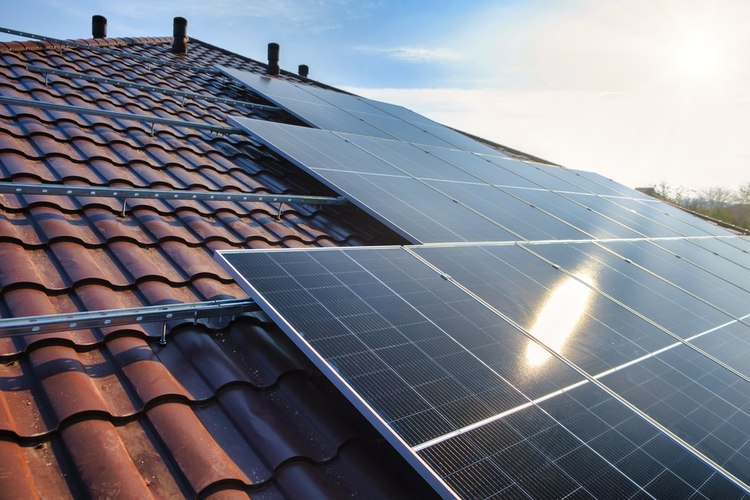Your UK Solar Journey Starts Here: Business & Residential Solar Installations
Embrace a sustainable future and unlock significant energy savings for your property with solar power. Whether for a home or a business, installing solar panels is a smart investment that boosts energy independence and reduces carbon footprint, setting you on a path to a brighter, greener tomorrow.

Understanding Solar Power for UK Properties
The UK might not be known for its sunny climate, but solar technology has advanced significantly to work effectively even in British weather conditions. Solar photovoltaic (PV) panels convert sunlight into electricity, while solar thermal systems heat water. Modern solar panels can generate substantial power even on cloudy days, making them viable throughout Britain. The typical UK installation uses monocrystalline or polycrystalline panels, with the former offering higher efficiency but at a greater cost, while the latter provides good performance at a more accessible price point.
Residential Solar Solutions and Their Benefits
For UK homeowners, solar installations offer numerous advantages beyond environmental benefits. The primary appeal is reduced electricity bills, with most residential systems cutting energy costs by 40-70% depending on system size and household consumption. Additionally, any excess power generated can be exported to the grid through the Smart Export Guarantee (SEG) scheme, providing income for your surplus energy. Solar panels typically increase property value by 3-4% and require minimal maintenance, usually just annual cleaning and occasional professional checks to ensure optimal performance.
Business Solar Installations Powering Your Enterprise
Commercial solar installations are scaled to meet the higher energy demands of business operations. Companies can significantly reduce operational costs while demonstrating environmental responsibility to increasingly eco-conscious customers and stakeholders. Many businesses find that solar installations provide protection against unpredictable energy price fluctuations, offering greater financial forecasting stability. For larger commercial properties, options include rooftop arrays similar to residential installations but on a larger scale, solar carports that utilize parking areas, and ground-mounted systems for properties with available land. The return on investment period for business installations typically ranges from 4-8 years, after which the energy savings represent pure profit.
Navigating Grants and Funding for Solar Panels
While the UK government’s Feed-in Tariff scheme closed to new applicants in 2019, several financial support mechanisms remain available. The Smart Export Guarantee (SEG) requires electricity suppliers with over 150,000 customers to pay for excess energy exported to the grid. For businesses, the Enhanced Capital Allowance (ECA) scheme allows companies to claim tax relief on energy-efficient technologies including solar. Additionally, the VAT on solar panel installation remains at 5% for residential properties rather than the standard 20%, representing significant savings. Some local authorities also offer grants or subsidized loan schemes for renewable energy installations, making it worthwhile to check with your council before proceeding.
Solar Installation Process and Timeframes
The journey from deciding on solar to enjoying renewable energy typically takes 4-12 weeks. The process begins with a property assessment and system design by qualified installers, who evaluate roof orientation, angle, available space, and shading issues to determine optimal panel placement. After design approval, planning permission is rarely required for standard installations unless your property is listed or in a conservation area. The physical installation usually takes just 1-3 days for residential properties and 1-2 weeks for commercial buildings, depending on system size and complexity. Once installed, your system requires connection to the grid and registration with your energy supplier to benefit from export payments.
Choosing the Right Solar Installation Partner
Selecting a qualified, trustworthy installer is crucial for a successful solar project. Always verify that potential installers are MCS (Microgeneration Certification Scheme) certified, which ensures they meet industry standards. Request detailed quotations from multiple providers, comparing not just price but also panel efficiency, warranty periods, and after-installation support. Ask for references from previous clients and check online reviews to assess customer satisfaction. The best installers will conduct thorough site surveys and provide transparent information about expected performance and payback periods rather than making unrealistic promises about energy generation.
| Solar Installation Provider | Specialization | Panel Types Offered | Warranty Period | Typical Price Range (Residential) |
|---|---|---|---|---|
| Octopus Energy | Residential | Monocrystalline | 25 years | £4,000 - £8,000 |
| EDF Energy | Both | Mono/Polycrystalline | 20-25 years | £5,000 - £9,000 |
| E.ON Solar | Both | Multiple types | 25 years | £4,500 - £8,500 |
| British Gas Solar | Residential | Monocrystalline | 25 years | £6,000 - £10,000 |
| Evo Energy | Commercial | High-efficiency | 25-30 years | £10,000+ (small business) |
Prices, rates, or cost estimates mentioned in this article are based on the latest available information but may change over time. Independent research is advised before making financial decisions.
Solar power represents a significant but rewarding investment for UK property owners. With careful planning, appropriate system design, and selection of quality components, solar installations typically pay for themselves within 7-15 years while continuing to generate clean energy for 25+ years. As the UK continues its transition toward renewable energy, early adopters gain both financial advantages and contribute meaningfully to the nation’s carbon reduction goals. Whether for a family home or a large commercial enterprise, solar power offers a practical path to energy independence and sustainability in Britain’s evolving energy landscape.




